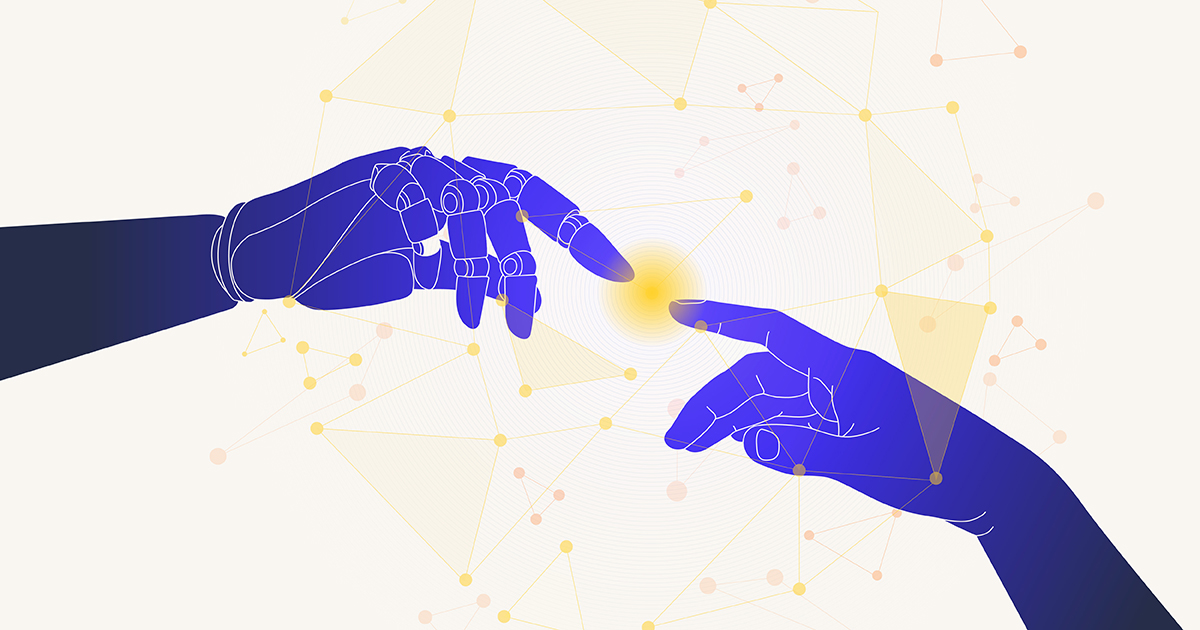Every day, we are confronted with an overwhelming number of decisions that we must make, both in our personal and professional lives. According to a 2018 study, adults make an average of 35,000 decisions each day. However, the frameworks that guide our decision-making are complex and can become subject to the ethical considerations that form part of who we are.
Whether we are deciding on matters that concern us personally or those that relate to our work, these frameworks can become multi-faceted. Nevertheless, it’s through ethical considerations that we define ourselves as a society, and this, in turn, shapes our decisions.
The impact of ethical AI on society
Advancements in research and technology have been instrumental in driving social progress for decades if not centuries. These developments have brought undeniable improvements to society, but it’s worth noting that it has not always been implemented with the same speed or purpose in every community. While industrial and technological revolutions have transformed the world in unprecedented ways, it has not always been for the better. These revolutions have often been carried out by relocating business operations to take advantage of cheap labor or resources.
The result has been a shift in labor models, with remote work and global labor platforms disrupting traditional employment practices. This wave of change has put many local governments in a difficult position, unable to regulate or control the impact of these new models.
As we continue to embrace technology, it’s important to remain cognizant of the potential consequences. Recent unethical conduct in the health, privacy, and e-commerce sectors has sounded an alarm that should dictate how future technologies are rolled out.
Meta, Facebook’s parent company, and IBM both decided to shut down their Facial Recognition system due to concerns raised by users and subscribers, though this decision came after Meta’s $650 million privacy lawsuit settlement. This proves that bottom-line profits are still dependent on the adoption of new tech. In the same vein, AI is increasingly being used to diagnose patients, yet many patients are not even aware that their diagnoses are based on AI analyses. In the CX industry, customers often engage with AI chatbots thinking that it is a real person.
The problem is not the technology itself, but rather how we use it. Each worker in the production chain has a role to play, and it’s up to all of us to use technology ethically and responsibly. Only then can we ensure that the benefits of industrial and technological revolutions are shared fairly and equitably.
The role of data labelers
For years, Artificial Intelligence (AI) has been a buzzword in the tech industry. In recent times, it has taken center stage and made a significant impact on various sectors. At the core of developing AI models lie the crucial task of data labeling, which involves the process of identifying raw data, such as images, text files, and videos, among others. The process adds informative labels to provide context to enable machine learning models to learn from the data.
It’s worth noting that when we speak of data, it implicitly refers to big data. This realization has prompted companies to outsource their machine-learning models. These models rely on scalability principles and require large teams to preprocess vast amounts of data.
The demand for data labeling companies has soared in this new wave of big data. The outsourcing industry has emerged as a crucial player in providing these services, thanks to its capacity to provide large teams with hundreds, if not thousands of staff, and the low cost of labor in emerging countries.
Outsourcing has become a vital tool for companies looking to develop robust AI models. Its low-cost labor and the ability to provide large teams of data labelers have made it a go-to option for businesses worldwide.
Data: The modern factory
In some ways, today’s big tech data teams resemble the manufacturing factories of the past, such as the electronics, textiles, or automotive factories from the 80s or 90s. However, instead of producing metals, plastics, or clothes, these teams manufacture data through various processes.
Data manufacturing is a complex process that requires a high degree of accuracy and attention to detail, but it is also a vital aspect of the modern economy as we have come to know it. The data produced is the lifeblood of modern society and fuels the decisions of individuals, businesses, and governments alike.
However, just like the workers in traditional factories, those working in data manufacturing face challenges in terms of working conditions and ethical considerations. Although significant progress has been made in improving the working conditions of factory workers, the data industry must also develop ethical frameworks to ensure the fair treatment of workers and the responsible use of data.
The progress made in traditional manufacturing factories could serve as a guide to building a responsible and ethical framework for the data industry, ensuring that workers are treated fairly, and data is used responsibly.
Outsourcing the unethical
Earlier this year, revelations of the disturbing working conditions of a Kenyan outsourcing company, which conducted data labeling services for OpenAI, shook the tech world. OpenAI, the company behind ChatGPT, offers revolutionary technology that has left users speechless with its potential to transform the world through artificial intelligence.
Advanced algorithms like ChatGPT require human assistance to identify toxic or inappropriate content to develop machine-learning models capable of tracking and assessing bulk data in real time. However, the workers involved in this process are regularly exposed to text snippets that are often violent and hateful, leading to severe mental health issues and the need for psychological treatment.
To add insult to injury, a recent Times investigation revealed that these workers, usually Kenyan-based, received as little as $1.44 per hour for their work. Sama, the data labeling company that facilitated the project for OpenAI, has previously done similar projects for Meta, both of which are currently facing legal consequences in Kenya over reports of poor working conditions for workers.
Sadly, the fact that data annotation and labeling is set to become the hottest new outsourcing model, only means that exploitation will be sure to follow. In India, there are around 50,000 freelance ghost workers who are paid cents for data labeling work. They also estimate that by 2023, India will employ around 1 million data label experts.
It’s essential to recognize the human cost of AI’s advancement and to ensure that the workers behind this revolutionary technology are treated with the respect and dignity they deserve.
Closing thoughts
The ethical implications of technological progress have been a topic of debate for years, especially where there are concerns that it could be replace the human element. But when it comes to AI, there can be no false dichotomy between progress and ethics. AI has the potential to improve our lives in countless ways, but not at the expense of mental health and basic labor rights. As employment becomes increasingly connected and fluid, it’s more important than ever before to establish an ethical framework that underpins the entire production process centered around data.
The outsourcing industry is uniquely positioned to lay these foundations, drawing from past mistakes and avoiding pitfalls as we serve different industries. Society has too much at stake to ignore the risks posed by the acquisition and processing of data without adequate control mechanisms.
Data processing presents complex challenges, particularly about certain types of data. We cannot simply delegate this responsibility to workers with poor working conditions and expect them to do the dirty work. Not only is this approach unfair and unethical, but it also creates a weak foundation for the rest of the process that ultimately reaches the consumer.
To build a robust and ethical approach to AI in the outsourcing industry, we must ensure that every step of the process is handled with care and consideration for human welfare. This means implementing control mechanisms that safeguard data acquisition and processing, while also protecting the rights and well-being of workers. Only by taking a thoughtful and conscientious approach to AI can we ensure that technological progress and human ethics can coexist in harmony.
Joaquin Gomez is the Research Analyst at Boldr and is keeping a fine eye on all things related to artificial intelligence and the Customer Experience industry.


